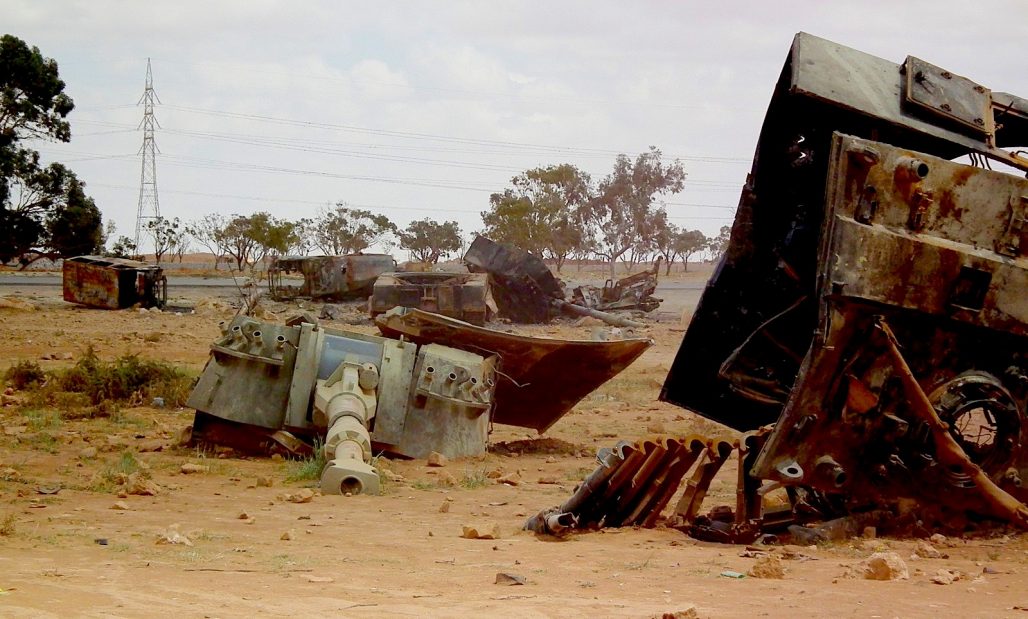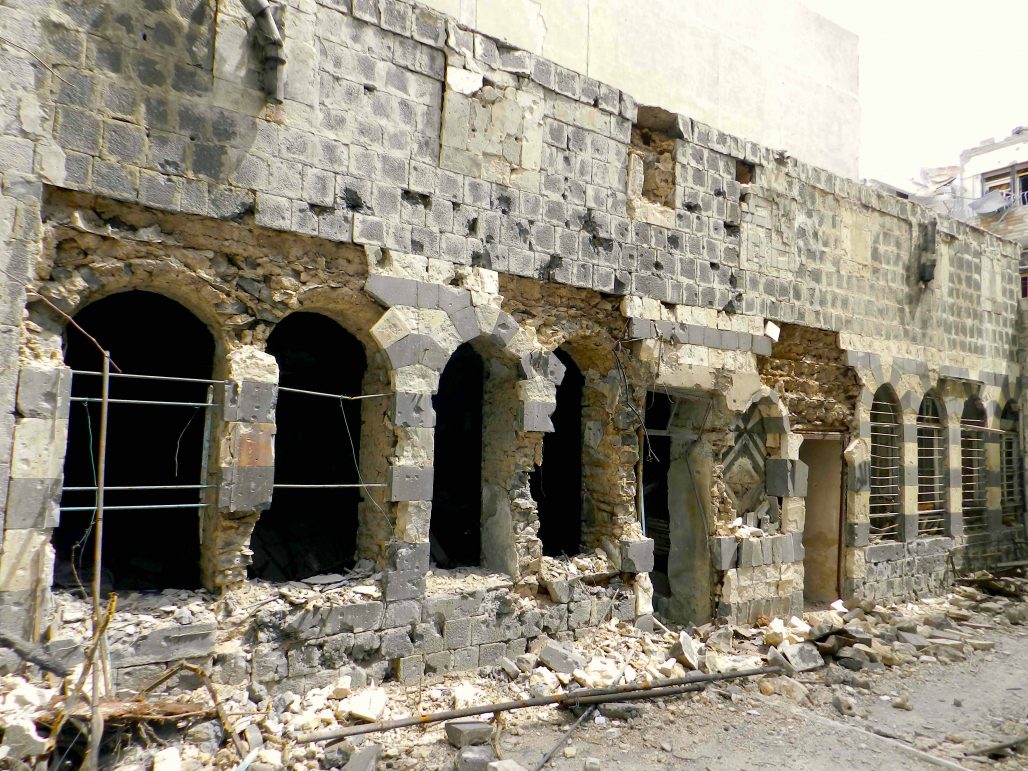Zonder
de vele artikelen van Khashoggi te hebben gelezen die in
Saoedi-Arabië werden gepubliceerd en zonder veel van diens leven te
weten, hebben ze in feite een ex-fanatiek aanhanger van het Saoedisch
koningshuis (bloederige dictators) schoon gewassen.......
Khashoggi
was heel lang een groot bewonderaar van het Saoedische koningshuis en
heeft zich het grootste deel van zijn leven achter deze dictatuur en
al haar bloederige uitspattingen geschaard.........
Khashoggi
zou zelfs aan de kant van Osama bin Laden hebben gevochten, al was
het dan als embedded journalist......
Vergeet
niet dat alle jaren dat Khashoggi in Saoedi-Arabië werkte, echte
journalistiek niet was toegestaan, laat staan kritiek leveren op de
dictatuur....... Collega's die door de dictatuur van S-A werden opgepakt en gemarteld vanwege 'de geur van kritiek' in hun berichtgeving, behoefden niet te rekenen op steun van Khashoggi.......
Zelf
concludeer ik na een aantal columns van Khashoggi in de
Washington Post*
(WaPo) te hebben gelezen, dat Khashoggi weliswaar vuile handen heeft
gemaakt in Saoedi-Arabië, al was het maar het niet opkomen voor
collega's die niet zo braaf waren en zwaar werden gestraft, maar hij
in de VS wel degelijk fiks tekeerging tegen S-A en bijvoorbeeld haar
smerige oorlog in Jemen (die hij overigens niet als genocide
aanduidde, zoals het overgrote deel van de westerse collega's dat nalaten)......
Er is
niet veel nodig om de doodstraf te krijgen in S-A en gezien een
aantal van zijn columns overschreed hij daarmee een lijn, die
waarschijnlijk tot zijn dood leidde..... Zo had hij verder kritiek op o.a
de blokkade van Qatar en de propaganda van S-A tegen Iran, zaken die
in S-A 'doodstrafwaardig' zijn...... Kortom Khashoggi is ten inkeer gekomen, wat hem niet vrijpleit van het jarenlang propaganda maken voor het bloederige Saoedische koningshuis.
Lees het
artikel van AbuKhalil en oordeel zelf:
Jamal Khashoggi Was No Critic of the Saudi Regime
October
16, 2018 at 10:51 am
Written
by Consortium
News
Jamal
Khashoggi, the Saudi journalist, who disappeared in the Saudi
consulate in Istanbul last week is not quite the critic of the Saudi
regime that the Western media says he is.
(CN Op-ed) — The
disappearance of Jamal Khashoggi, the Saudi journalist, in the Saudi
consulate in Istanbul last week has generated huge international
publicity, but unsurprisingly, little in Saudi-controlled, Arab
media. The
Washington Post, for
whom Khashoggi wrote, and other Western media, have kept the story
alive, increasing the pressure on Riyadh to explain its role in the
affair.
It’s
been odd to read about Khashoggi in Western media. David Hirst in The
Guardian claimed
Khashoggi merely cared about absolutes such as “truth, democracy,
and freedom”.
Human Rights Watch’s director described him as representing
“outspoken and critical journalism.”
But
did he pursue those absolutes while working for Saudi princes?
Khashoggi
was a loyal member of the Saudi propaganda apparatus. There is no
journalism allowed in the kingdom: there have been courageous Saudi
women and men who attempted to crack the wall of rigid political
conformity and were persecuted and punished for their views.
Khashoggi was not among them.
Some
writers suffered while Khashoggi was their boss
at Al-Watan newspaper. Khashoggi—contrary to what
is being written—was never punished by the regime, except lightly
two years ago, when Saudi Crown Prince Mohammed bin Salman (MbS)
banned him from tweeting and writing for Al-Hayat, the
London-based, pan-Arab newspaper owned by Saudi Prince Khalid
bin Sultan.
By
historical contrast, Nasir As-Sa`id was a courageous secular Arab
Nationalist writer who fled the kingdom in 1956 and settled in Cairo,
and then Beirut. He authored a massive (though tabloid-like) volume
about the history of the House of Saud. He was unrelenting in his
attacks against the Saudi royal family.
For
this, the Saudi regime paid a corrupt PLO leader in Beirut (Abu
Az-Za`im, tied to Jordanian intelligence) to get rid of As-Sa`id. He
kidnapped As-Sa`id from a crowded Beirut street in 1979 and delivered
him to the Saudi embassy there. He was presumably tortured and killed
(some say his body was tossed from a plane over the “empty quarter”
desert in Saudi Arabia). Such is the track record of the regime.
Finding the Right Prince
Khashoggi
was an ambitious young reporter who knew that to rise in Saudi
journalism you don’t need professionalism, courage, or ethics. In
Saudi Arabia, you need to attach yourself to the right prince. Early
on, Khashoggi became close to two of them: Prince Turki Al-Faysal
(who headed Saudi intelligence) and his brother, Prince Khalid
Al-Faysal, who owned Al-Watan (The Motherland) where
Khashoggi had his first (Arabic) editing job.
Khashoggi
distinguished himself with an eagerness to please and an uncanny
ability to adjust his views to those of the prevailing government. In
the era of anti-Communism and the promotion of fanatical jihad
in Afghanistan and elsewhere, Khashoggi was a true believer. He
fought with Osama bin Laden and promoted the cause of the Mujahideen.
The
Washington Post‘s
David Ignatius and others want to embellish this
by implying that he was an “embedded” reporter—as if bin
Laden’s army would invite independent journalists to report on
their war efforts. The entire project of covering the Afghan
Mujahideen and promoting them in the Saudi press was the work of the
chief of Saudi intelligence, Prince Turki, Khashoggi’s principal
patron-prince.
Western
media coverage of Khashoggi’s career (by people who don’t know
Arabic) presents a picture far from reality. They portray a
courageous investigative journalist upsetting the Saudi regime.
Nothing is further from the truth: there is no journalism in Saudi
Arabia; there is only crude and naked propaganda.
Editors
are trusted individuals who have demonstrated long-time loyalty.
Khashoggi admitted to an Arab reporter last year in an interview
from Istanbul that in Saudi Arabia he had been both
editor and censor.
Editors of Saudi regime papers (mouthpieces of princes and kings)
enforce government rules and eliminate objectionable material.
Khashoggi
never spoke out for Saudis in distress. He ran into trouble in two
stints as Al-Watan editor because of articles he
published by other writers, not by himself, that were mildly critical
of the conservative religious establishment—which he at times
supported. He was relocated to another government media job— to
shield him from the religious authorities.
Khashoggi
was the go-to man for Western journalists covering the kingdom,
appointed to do so by the regime. He may have been pleasant in
conversation with reporters but he never questioned the royal
legitimacy. And that goes for his brief one-year stint in Washington
writing for the Post.
A Reactionary
Khashoggi
was a reactionary: he supported all monarchies and sultanates in the
region and contended they were “reformable.” To him, only the
secular republics, in tense relations with the Saudis, such as Iraq,
Syria and Libya, defied reform and needed to be overthrown. He
favored Islamization of Arab politics along Muslim Brotherhood lines.
Khashoggi’s
vision was an “Arab uprising” led by the Saudi regime.
In his Arabic writings he backed MbS’s “reforms” and even his
“war on corruption,” derided in the region and beyond. He thought
that MbS’s arrests of the princes in the Ritz were legitimate
(though he mildly criticized
them in a Post column)
even as his last sponsoring prince, Al-Walid bin Talal, was locked up
in the luxury hotel. Khashoggi even wanted to be an advisor to MbS,
who did not trust him and turned him down.
Writing
in the Post (with an Arabic version) Khashoggi came
across as a liberal Democrat favoring democracy and reform. But he
didn’t challenge Saudi regime legitimacy or Western Mideast policy.
Mainstream journalists were enamored with him. They saw him as an
agreeable Arab who didn’t criticize their coverage of the region,
but praised it, considering the mainstream U.S. press the epitome of
professional journalism. Khashoggi was essentially a token Arab
writing for a paper with a regrettable record of misrepresenting
Arabs.
In
Arabic, his Islamist sympathies with Turkey and the Muslim
Brotherhood (Ikhwan) were unmistakable. Forgotten or little
known in the West is that during the Cold War the Saudis sponsored,
funded, and nurtured the Muslim Brotherhood as a weapon against the
progressive, secular camp led by Egypt’s Gamal Abdel
Nasser. Ikhwan controlled the Saudi educational
system raising Saudi students to admire the Brotherhood. But Sep. 11
changed the Saudi calculus: the rulers wanted a scapegoat for their
role in sponsoring Islamist fanaticism and the Ikhwan was
the perfect target. That made Khashoggi suspect too.
Hints Against Him
Recent articles in
the Saudi press hinted that the regime might move against him. He had
lost his patrons but the notion that Khashoggi was about to launch an
Arab opposition party was not credible. The real crime was that
Khashoggi was backed alone by Ikhwan
supporters,
namely the Qatari regime and the Turkish government.
A
writer in Okaz,
a daily in Jeddah, accused him
of meeting with the Emir of Qatar at the Four Seasons Hotel in New
York and of having ties to “regional and international intelligence
services.” If true it may have sealed his fate. Qatar is now the
number one enemy of the Saudi regime—arguably worse than Iran.
Khashoggi
was treated as a defector and one isn’t allowed to defect from the
Saudi Establishment. The last senior defections were back in 1962,
when Prince Talal and Prince Badr joined Nasser’s Arab nationalist
movement in Egypt.
Khashoggi
had to be punished in a way that would send shivers down the spine of
other would-be defectors.
====================================
Zie ook:
'Bolton (o.a. Trumps adviseur buitenlandse zaken) wil de Khashoggi tapes niet horen, hij is het arabisch niet machtig....... ha! ha! ha! ha! ha! ha! ha! ha! ha!'
'Khashoggi: VS prijs voor uit de wind houden van Saoedische terreurkroonprins MBS >> 450 miljard dollar'
'Trump geeft toe dat de VS niets te maken heeft met het beleid in andere landen >> 'gelukkigen' in deze: de moordenaars van Khashoggi.......'
'Trump weet het zeker, de top van de Saoedische dictatuur wist niet van de moord op Khashoggi....'
'Tony Blair weigert na de moord op Khashoggi een lucratieve deal met Saoedi-Arabië op te zeggen'
'Saoedi-Arabië vindt zich een baken van licht tegen het duister verspreidende Iran..... ha! ha! ha! ha! ha! ha! ha!'
'Macron (Franse president) laat ware gezicht zien op vraag over wapenleveringen aan Saoedi-Arabië'
''Onderzoek' naar moord op Khashoggi in Saoedisch consulaat te Istanbul voorafgegaan door grote schoonmaakactie........'
'Khashoggi waarschijnlijk vermoord vanwege kennis over de 9/11 aanslagen'
'Khashoggi terecht groot in media, waar de aandacht voor Saoedische genocide op sjiieten Jemen amper wordt genoemd'
'Saoedi-Arabië heeft 15 'psychopathische macho's nodig om één journalist te vermoorden'



